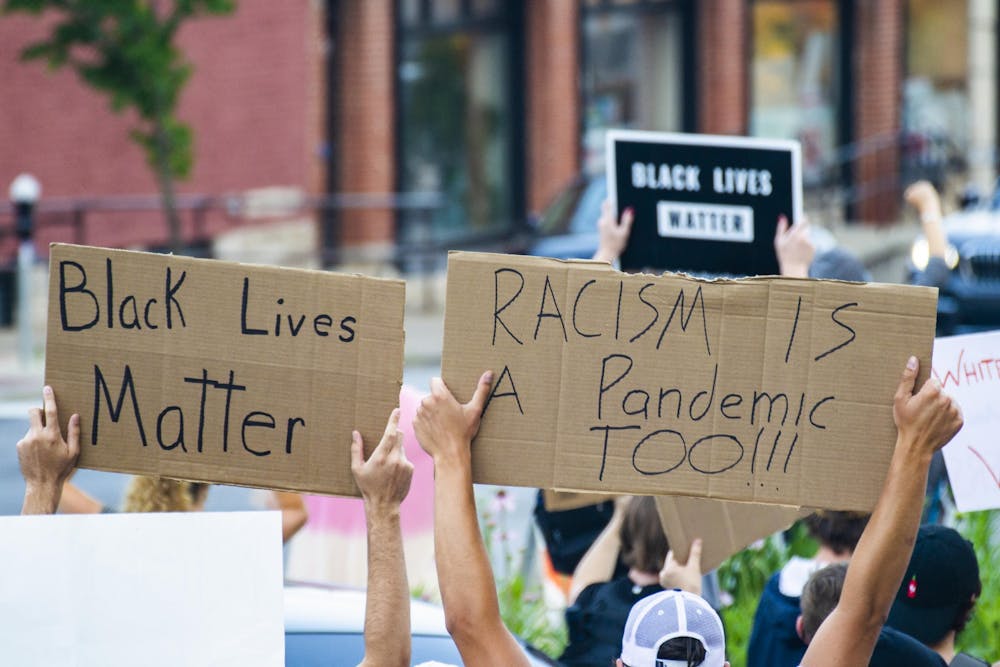Black Lives Matter protests peaked in the public eye in the summer of 2020 after the death of George Floyd. Since then, protests have shifted public discourse and increased discussions of anti-racism, according to IU researchers.
The research paper, “Black Lives Matter protests shift public discourse,” focuses on how protests capture the public’s attention as shown by the increase in search activity related to BLM on online platforms like Google, Twitter and Wikipedia.
The researchers found the protests not only brought attention to police brutality, but they also ignited interest in other fundamentally racist ideas like white supremacy, systemic racism and mass incarceration.
“Going into the research, we expected that during protest, searches for Black Lives Matter would be much higher,” Zackary Dunivin, lead author of the paper and doctoral student in sociology and complex systems at IU, said. “But what we were surprised to see is that there was a clear progression of the ideas that people associated with BLM during protest.”
The other authors of the paper include Fabio Rojas, professor of sociology at IU, and Harry Yaojun Yan, doctoral student in media arts and sciences and complex networks and systems at IU.
"Key word searches indicate attention,” Rojas said. “Thus, a protest movement may be winning in the court of public opinion when its ideas are talked about so often that regular people feel the need to learn about them.”
The researchers examined online media searches for 41 different terms related to BLM from 2014 to 2020. They found that spikes in BLM searches often coincide with protests but the public interest in these terms continued after the initial increase.
When comparing tweets from the fall of 2019 and the same time in 2020, the study found there was a massive increase in discussion related to BLM. Mentions of the term “police brutality” quintupled and “white supremacy” increased ninefold in just a year, suggesting the impact of BLM protests is lasting.
The researchers believe the significance of this is based in the attention it brings to previously ignored topics.
“You can't get everyone to agree with you, but the fact that people are paying attention to mass incarceration and housing segregation means that it is more possible to fix these problems than it was when people weren't paying attention,” Dunivin said. “You can't fix problems that no one is talking about.”




